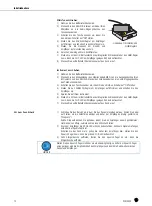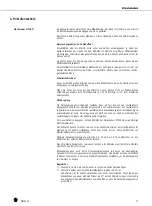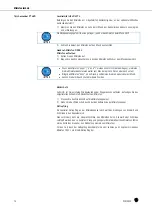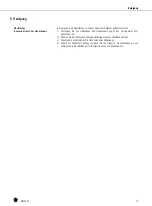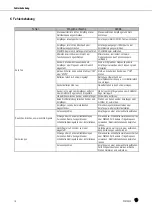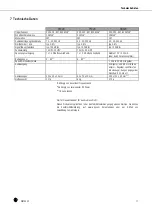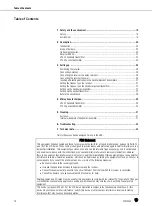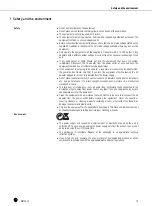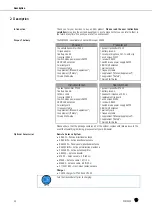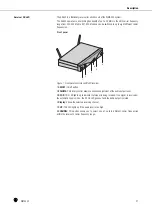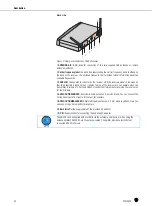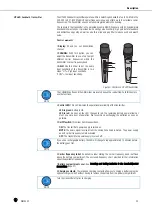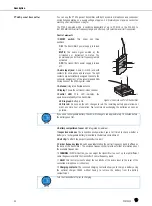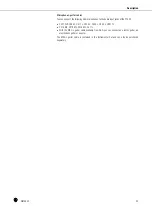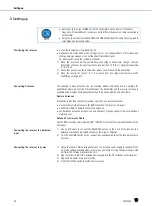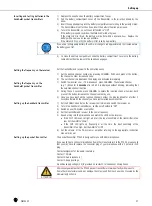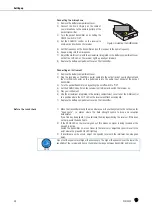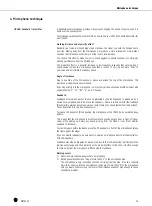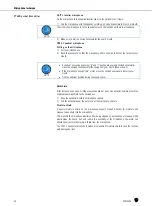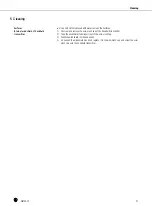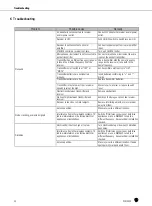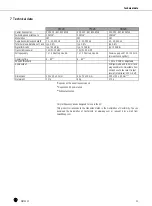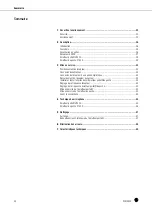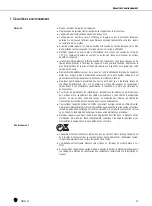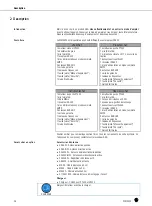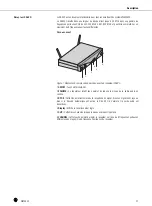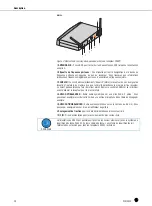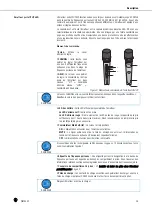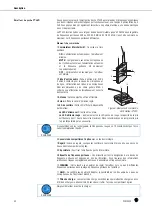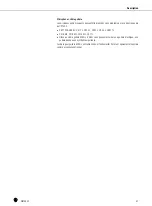
26
WMS420
Setting
up
NOTE
Before you turn on your WMS420, set the transmitter and the receiver to the same
frequency. If transmitter and receiver are set to different frequencies, radio connection is
not possible!
Using the two output jacks (BALANCED and UNBALANCED) at the same time may lead to
level drops and increased noise.
Set up the receiver as a free-standing unit.
Reflections off metal parts, walls, ceilings, etc. or the shadow effects of musicians and
other people may weaken or cancel the direct transmitter signal.
For best results, set up the receiver as follows:
1)
Place the receiver near the performance area (stage). Make sure, though, that the
transmitter will never be any closer to the receiver than 10 ft (3 m). Optimum separation
is 16 ft (5 m).
2)
Check that you can see the receiver from where you will be using the transmitter.
3)
Place the receiver at least 5 ft. (1.5 m) away from any large metal objects, walls,
scaffolding, ceilings, etc.
The supplied ¼-wave antennas can be mounted quickly and easily and are suitable for
applications where a direct line of sight between the transmitter and the receiver antenna is
available and a wireless microphone system has to be set up within a very short time.
Remote Antennas
If reception is less than ideal at the receiver’s position, use remote antennas:
Connect the remote antennas to the BNC sockets on the receiver rear panel.
Use RG58 or RG213 cable to connect the antennas.
For details on antennas, accessories, and frequency planning support visit our website at
www.akg.com.
Antenna Front-mount Cable
Use the BNC extension cable (AKG part #0110E01890) to mount the ¼-wave antennas on the
front panel
1)
Use an XLR cable to connect the BALANCED output on the back of the receiver to a
balanced microphone input (XLR socket) on the mixer or amplifier.
2)
Turn the VOLUME control on the receiver fully anticlockwise to set the receiver output to
mic level.
1)
Check that the AC mains voltage stated on the included power supply is identical to the
AC mains voltage available where you will use your system. Using the power supply with
a different AC voltage may wreck the unit.
2)
Plug the feeder cable of the included power supply into the DC IN socket on the receiver.
3)
Plug the AC adapter into a power outlet.
4)
Press the ON/OFF switch to switch the receiver on.
3
Setting up
Positioning the receiver
Connecting Antennas
Connecting the receiver to a balanced
input
Connecting the receiver to power

